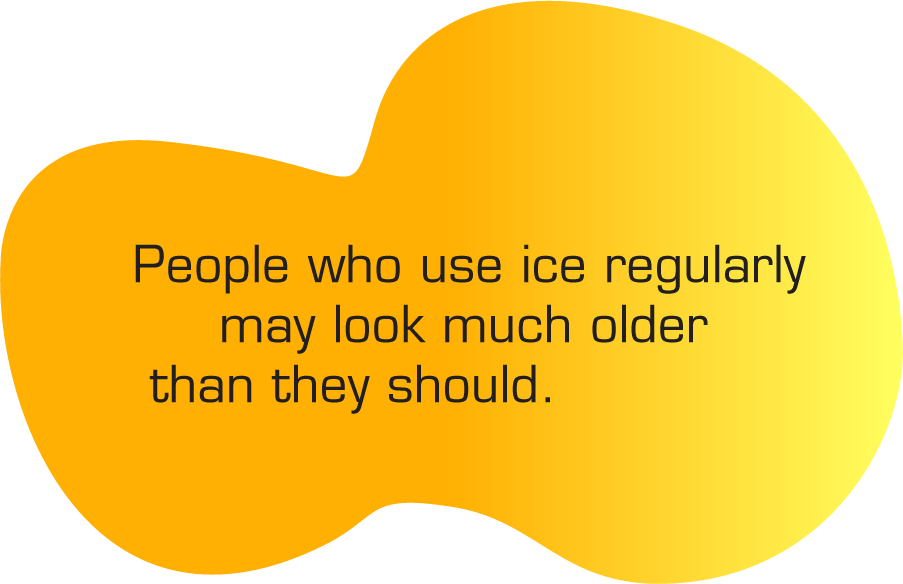Drugs Explained


Ice
Ice (crystal meth) is a methamphetamine, a member of the amphetamine family of drugs. It is very addictive and is linked to chronic physical and mental health problems.
Crystal Meth is a central nervous system stimulant. It causes high levels of dopamine (a brain chemical associated with pleasure and reward) to be released. It is purer and more powerful than other types of methamphetamine, like speed.
It comes as little crystals that look like ice or as white to brownish, crystal-like powder, and has a strong smell and bitter taste. It can be injected, smoked, snorted or swallowed.
It is also known as crystal meth, shabu, crystal, glass, shard and p.
What are the effects of taking ice?
Crystal Meth produces an intense rush that can make people feel confident and energetic. They may have increased sex drive, itching and scratching, enlarged pupils, fast heartbeat, dry mouth, grind their teeth or sweat excessively. The effects can last for up to 12 hours.
It can be hard to sleep for a few days after taking Crystal Meth. People who are coming down may have difficulty sleeping, headaches, paranoia or hallucinations, or feel very irritable and down.
Crystal Meth can affect people differently based on:
- how much they take
- how strong it is
- their size, height and weight
- whether they are used to taking it
- whether they take other drugs at the same time
What can go wrong with ice?
People who use ice can suffer from paranoia, hallucinations, memory loss and difficulty sleeping. Frequent high doses can cause ‘ice psychosis’ with paranoid delusions, hallucinations, and strange, aggressive or violent behaviours. This can last a few days.
People who take a large amount or a strong batch are at risk of overdose. The signs of overdose include:
- breathing problems
- fits
- uncontrolled jerking
- being very agitated and confused
- sudden, severe headache
- heart palpitations
An overdose can lead to a cardiac arrest, unconsciousness or death. If you suspect someone has overdosed on ice, call triple zero (000) and ask for an ambulance. The ambulance officers don’t have to call the police.


Can ice cause long-term problems?
People who use Crystal Meth repeatedly can develop physical problems including extreme weight loss, poor sleep, dental problems, regular colds, trouble concentrating, stiff muscles, heart problems, kidney problems, depression or stroke.
People who use ice regularly may look much older than they should.
They can find everyday activities less enjoyable, have rapid mood swings and become depressed and easily stressed. They are also susceptible to social, work and financial problems.
*Snorting the ice can cause nosebleeds, sinus problems and damage to the nose.
Sharing needles increases the risk of tetanus, infections, vein damage, Hepatitis B, Hepatitis C and HIV.
What if I use other drugs or alcohol together with ice?
Using ice along with drugs like speed or ecstasy increases the risk of a stroke. Using it with alcohol, cannabis or benzodiazepines increases the risk of an overdose.


Can I become dependent on ice?
People quickly need larger doses of ice to produce the same effect, making ice highly addictive. Some users feel they need the drug just to get through the day.
Withdrawing can be difficult and can lead to cravings, increased appetite, confusion, irritability, aches and pains, exhaustion, sleep problems, anxiety, depression and paranoia.




